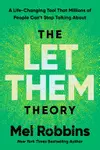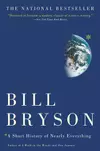
Matt Inman

This book hits at the right time for me. The core idea is simple, but the way Mel explains it makes it feel practical and doable. She lays out the process clearly, and the framework really does make you pause and rethink how much energy you spend trying to manage things that are never yours to control in the first place.
I also liked that she brought in science to back up her points. It keeps the book from feeling like another self help idea floating around without any grounding. You can tell she cares about making the reader understand not just the what, but the why.
The only part that dragged a bit for me is that she repeats herself in a few places. But if you have ever watched Mel speak, you know that repetition and enthusiasm are part of her style. She is a high energy person. That energy shows up on the page too.
Overall, the idea is excellent, the book teaches the process well, and it gives you something you can use right away. It is one of those rare personal growth books where the takeaway is simple enough to remember and strong enough to actually change how you move through your day.
This book hits at the right time for me. The core idea is simple, but the way Mel explains it makes it feel practical and doable. She lays out the process clearly, and the framework really does make you pause and rethink how much energy you spend trying to manage things that are never yours to control in the first place.
I also liked that she brought in science to back up her points. It keeps the book from feeling like another self help idea floating around without any grounding. You can tell she cares about making the reader understand not just the what, but the why.
The only part that dragged a bit for me is that she repeats herself in a few places. But if you have ever watched Mel speak, you know that repetition and enthusiasm are part of her style. She is a high energy person. That energy shows up on the page too.
Overall, the idea is excellent, the book teaches the process well, and it gives you something you can use right away. It is one of those rare personal growth books where the takeaway is simple enough to remember and strong enough to actually change how you move through your day.

A friend recommended The Kill Artist to me after I finished a Dan Brown novel, but it didn’t quite live up to what I was hoping for. The writing itself is solid and well-paced, and Silva clearly knows his craft, but the story felt more like a straightforward spy thriller than the layered mystery I expected. I was looking for more intrigue and complexity, something with sharper twists or deeper secrets. Instead, it played out predictably. Not a bad read, just not the one that kept me guessing.
A friend recommended The Kill Artist to me after I finished a Dan Brown novel, but it didn’t quite live up to what I was hoping for. The writing itself is solid and well-paced, and Silva clearly knows his craft, but the story felt more like a straightforward spy thriller than the layered mystery I expected. I was looking for more intrigue and complexity, something with sharper twists or deeper secrets. Instead, it played out predictably. Not a bad read, just not the one that kept me guessing.

I went into this book with an open mind, curious about the research and claims around remote viewing and consciousness that Russell Targ helped pioneer. The early chapters are interesting, and some of the testing methods he describes make sense on the surface. He clearly believes in what he’s presenting, and his background at Stanford Research Institute adds some credibility to the story.
That said, I just couldn’t get fully on board. The experiments often rely on results that are hard to verify, and even when something sounds repeatable, it doesn’t feel solid. I wanted to believe, but too much of it comes across as anecdotal or conveniently vague.
Still, I think Limitless Mind is worth checking out if you’re curious about the history of parapsychology or want to see how scientists once approached ideas most of us would call impossible. Even if you walk away skeptical like I did, it’s an interesting read that makes you think about how far people will go to explore the boundaries of the mind.
t
I went into this book with an open mind, curious about the research and claims around remote viewing and consciousness that Russell Targ helped pioneer. The early chapters are interesting, and some of the testing methods he describes make sense on the surface. He clearly believes in what he’s presenting, and his background at Stanford Research Institute adds some credibility to the story.
That said, I just couldn’t get fully on board. The experiments often rely on results that are hard to verify, and even when something sounds repeatable, it doesn’t feel solid. I wanted to believe, but too much of it comes across as anecdotal or conveniently vague.
Still, I think Limitless Mind is worth checking out if you’re curious about the history of parapsychology or want to see how scientists once approached ideas most of us would call impossible. Even if you walk away skeptical like I did, it’s an interesting read that makes you think about how far people will go to explore the boundaries of the mind.
t

I really enjoyed this book. The idea of pocket neighborhoods has always interested me, and Ross Chapin does a great job showing what they can look and feel like. The photos and examples are excellent and bring the concepts to life.
The book can feel a little scattered at times when it talks about the history, but the overall message and visuals more than make up for it. It left me inspired to think more about how small communities can be designed to bring people closer together.
I really enjoyed this book. The idea of pocket neighborhoods has always interested me, and Ross Chapin does a great job showing what they can look and feel like. The photos and examples are excellent and bring the concepts to life.
The book can feel a little scattered at times when it talks about the history, but the overall message and visuals more than make up for it. It left me inspired to think more about how small communities can be designed to bring people closer together.

I really enjoyed The Secret of Secrets. It dives into the idea of consciousness in a way that keeps you thinking while still giving you that classic Dan Brown pace and suspense. The mix of science, mystery, and philosophy works well and kept me hooked.
It feels like what you’d expect from Dan Brown, in a good way. If you’ve liked his other books, you’ll like this one too. It’s smart, fun to read, and leaves you with a lot to think about after you finish.
I really enjoyed The Secret of Secrets. It dives into the idea of consciousness in a way that keeps you thinking while still giving you that classic Dan Brown pace and suspense. The mix of science, mystery, and philosophy works well and kept me hooked.
It feels like what you’d expect from Dan Brown, in a good way. If you’ve liked his other books, you’ll like this one too. It’s smart, fun to read, and leaves you with a lot to think about after you finish.

I had high hopes for this book, but it didn't hit me right and I wasn't able to finish it. I think I'll give it another go in the future. I found the idea interesting and did learn quite a bit.
I had high hopes for this book, but it didn't hit me right and I wasn't able to finish it. I think I'll give it another go in the future. I found the idea interesting and did learn quite a bit.






